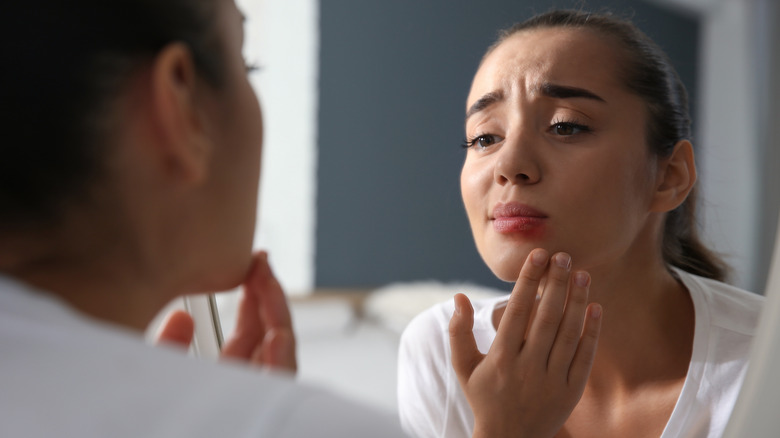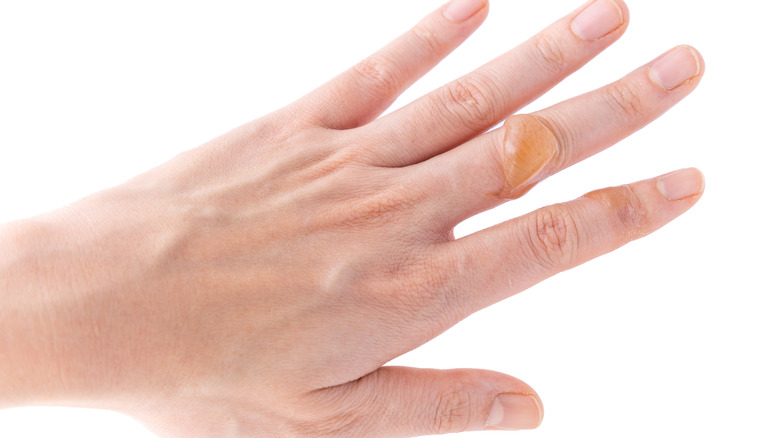Can You Get Herpes On Your Fingers?
Be honest: When you think of herpes, what comes to mind? Maybe cold sores, blisters around the mouth, pus-filled blisters around the genitalia, or difficulty urinating during an outbreak (particularly for women) — since these are common symptoms associated with herpes (via Medical News Today). In other cases, herpes can also be asymptomatic, points out the World Health Organization (WHO). While these symptoms may be a result of herpes, the virus can affect various body parts besides the genitals and the mouth. In fact, herpes can also get contracted by other parts of the body such as the eyes and rectum. But can you get herpes on your fingers too? Let's back up to understand a little more about this condition.
According to the Centers for Disease Control and Prevention (CDC), herpes is a sexually transmitted disease (STD) that stems from the herpes simplex virus (HSV). There are two types of HSV: herpes simplex virus type 1 (HSV-1) and herpes simplex virus type 2 (HSV-2). HSV-1, also known as oral herpes, shows up around the mouth (think fever blisters or cold sores), while HSV-2 is referred to as genital herpes and affects the genitals (per Medical News Today). Statistically speaking, around 3.7 billion people worldwide under the age of 50 have the HSV-1 virus, while 491 million people between the ages of 15 and 49 have the HSV-2 infection (via World Health Organization). In other words, herpes is a common health condition that affects people everywhere.
Herpetic whitlow can form on your fingers
For those wondering if you can get herpes on your fingers, the answer is yes, according to Medical News Today. Herpes on your finger is called herpetic whitlow, and it's caused by either strain of the herpes virus. It develops when HSV enters the bloodstream through an open cut found along the fingertip, finger, or nail bed. When herpetic whitlow is contracted the infected finger may become tingly at first, followed by tenderness, skin redness, and swelling (via National Library of Medicine). Pus-filled blisters can form here as well. These blisters are often small, painful to touch, and with time will burst open before scabbing over.
While anyone can get herpes on their finger, this mild health condition is most common among children who suck their thumbs and healthcare workers (such as respiratory therapists and dentist hygienists) who don't wear gloves when touching a patient's mouth. Symptoms generally clear up in 2 to 4 weeks and if the infection resurfaces the symptoms tend to be less severe (per Medical News Today).
While there's no cure for HSV, the CDC points out that antiviral medication may help shorten and prevent further outbreaks from happening. It can also lower the chances of the virus getting transmitted. Some antiviral medications that may help include famciclovir, valacyclovir, acyclovir pills, and acyclovir ointment. If you're concerned, always chat with your doctor.


